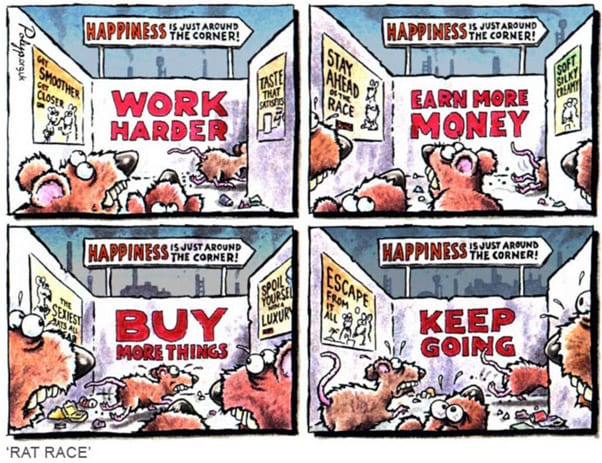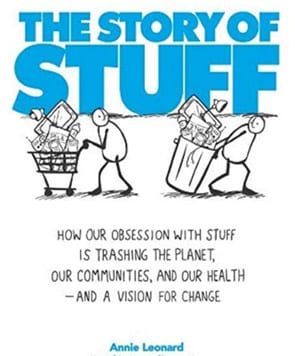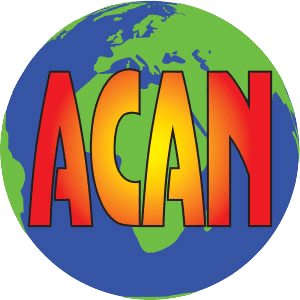The good news
The message from ACAN and all the thousands of climate action groups large and small around the world is that change in the way we live is not only necessary but actually desirable. The future we can build together if we address this crisis in time will improve our society. It will be a future where we live well.
The scientific predictions paint a frightening picture of the future if our climate systems break down.
But – we have the technology and the economic and social knowledge to address the climate emergency right now. We know what to do – look at What we can do, Ten Suggestions and the work of ACAN’s groups. We just need to get on and do it.
We asked people “what is the most life enhancing thing that could come from a zero-carbon society” – here are some of their responses

- All the things that matter to me in life are low-carbon: families, friends, communities, the arts. I look forward to the rediscovery of those joys.
- Consuming more definitely does not make you happy. I will delight in the fact that less is more …
- I will grow my own veg and cook more
- No more airport queues, no more traffic jams
- Birdsong – and much more of it than now
Quality of life is the new status symbol – think of a world where…
- The air and streets are clean (think of preventing the thousands of deaths from air pollution caused by fossil-fuel-powered vehicles)
- Many of our young people are employed in local green jobs
- We are generating a lot of our energy locally and fuel bills are greatly reduced due to energy efficiency
- Fuel poverty and its associated suffering will be a thing of the past
- We have regular, frequent, clean public transport
- We grow most of our food locally, and our diets are healthier, reducing the impact of obesity on ourselves and our NHS
- We have secure supplies of water for the long term
- There is less need to commute long distances to work, meaning more family and community time
- We have access to many more green spaces with flowers for pollinators and trees providing shade, sucking up CO2 and generally improving our physical and mental health and wellbeing, thus reducing demand for the NHS, Social Services and the Police service

- We will have time for community interactive activities, for horticulture, for arts and crafts.
- We can relax knowing our children and their children have a secure future to look forward to.
With the scientific knowledge available today, and the wealth of many western societies, we can solve many of the world’s pressing problems – and all live well.
Fast Forward Oxfordshire is an example of a detailed vision for life in 2040 developed by Friends of the Earth Oxford. It describes a zero-carbon Oxfordshire in 2040 and how it can be developed.
When you have enough, you don’t need any more
Towards a circular economy

Do we REALLY want to continue living like this?

“Consumption is acquiring goods and services to meet one’s needs.
Consumerism is about excess, about losing sight of what’s important in the quest for Stuff.” (Leonard, 2010)
We must break free of this trap!

Unfortunately economic growth and material prosperity have become the key measure of how most western governments and consumer societies judge their success. But this can change – we should lobby our Government to replace GDP with indicators of quality of life.
A better future lived safely within the earth’s resource limits must move away from our current linear economic model, in which we make things, use them and dispose of them with ever-increasing speed, to a circular model (see diagram below), which extends the life of things, and re-uses or refurbishes things to extend their life indefinitely. Alton Repair Café is a start, and we need to build on this to develop a local economy based on swapping and sharing and re-using materials.

United Nations Sustainable Development Goals – a better future for all
The international framework for a future based on quality of life is the United Nations Sustainable Development Goals – the blueprint to achieve a better and more sustainable future for all. The UN Goals address the global challenges we face, including those related to poverty, inequality, climate change, environmental degradation, peace and justice.
The 17 Sustainable Development Goals are all interconnected, and in order to leave no one behind, it is important that we achieve them all by 2030. The Goals are a call for action by all countries – poor, rich and middle-income – to promote prosperity while protecting the planet. They recognize that ending poverty must go hand-in-hand with strategies that build economic growth and address a range of social needs including education, health, social protection, and job opportunities while tackling climate change and environmental protection.
 Alton Climate Action Network
Alton Climate Action Network